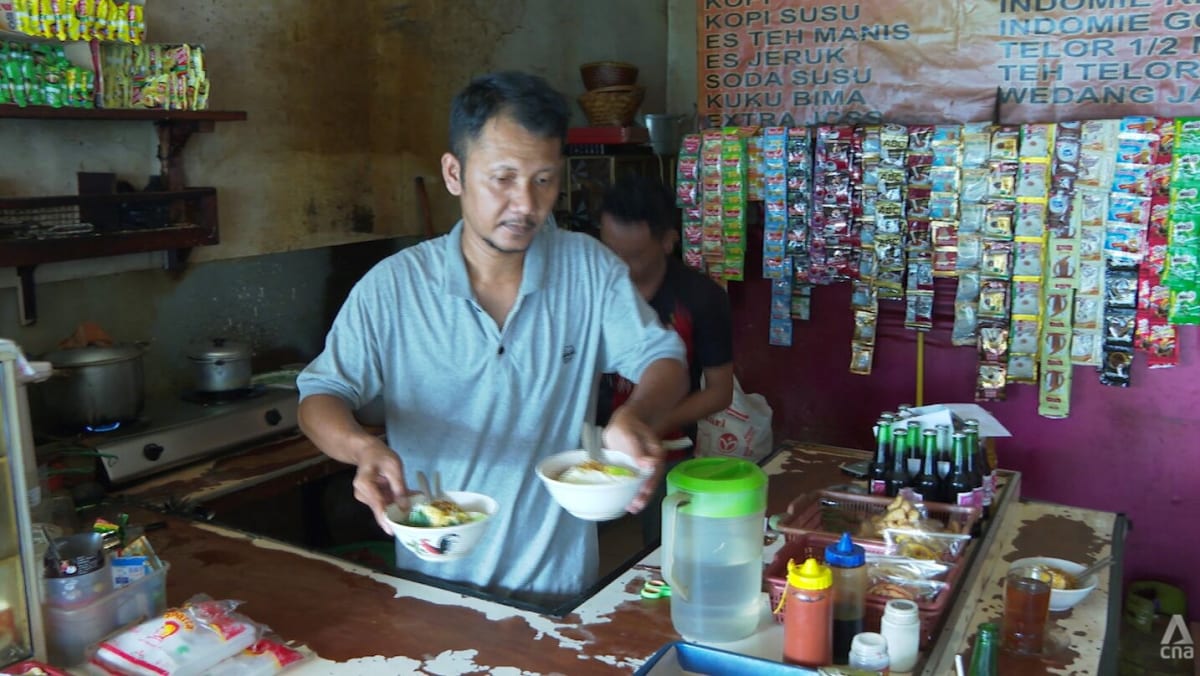Inflation and instant noodles: How Indonesia and Thailand are trying to keep the humble carb affordable
Mr Ungkool’s shop opened in late 2021, during which the lifting of COVID-19 restrictions was already in progress.
Thailand’s main staple is rice but instant noodles are an essential pantry item for many because of cost.
“They have been around in Thai society for a long time. It’s a friend at the end of the month,” Mr Ungkool told CNA, referencing a Thai figure of speech, in which, for many, instant noodles might be the only affordable meal just before payday.
WAR AND WHEAT
The main ingredient of instant noodles is wheat, a commodity Ukraine produces heaps of. But millions of tons of wheat, along with other grains like corn and barley, have been stuck in Ukrainian ports because of a Russian blockade.
A recent deal brokered by Turkey will allow exports to resume, a move that many hope will bring down global grain prices, and by extension, food prices.
For Indonesia, the largest wheat importer in the world, this cannot come soon enough. According to data from the UN food agency, the Food and Agriculture Organization, Indonesia imported more than 10 million tonnes of wheat in 2020 – a quarter of that came from Ukraine.
Thailand’s situation is similar. After the United States, Ukraine is Thailand’s second biggest source of wheat.
PASSING ON THE COST
Mr Agus, the warkop vendor in Jakarta, said the price of instant noodles went up by more 20 per cent two months ago. He has little choice but to pass this on to his customers.
He reeled off a list of figures – seemingly low – but for a clientele like his, not insignificant: “A bowl of instant noodles usually costs about 6,000 rupiah (US$0.40). Now, it’s 10,000 rupiah (US$0.66). Add an egg and it’s 13,000 rupiah (US$0.86).”
Food manufacturers are concerned of a protracted war.
“I’m not too worried about the food stock this year. This is because crops were sown last year, and harvested this year,” said Mr Adhi Lukman, chairman of the Indonesian Food & Beverage Producers Association (GAPMMI).
“But, if this war is prolonged, it will be difficult to sow new crops, and next year will be more dangerous, not only in terms of higher prices, but also the availability of the commodity.”
Mr Adhi told CNA he estimates food prices may go up by 5 per cent next year, putting more pressure on an Indonesian economy that saw inflation hit 4.35 per cent in June, the highest since 2017.
MANAGING FINANCES
Thailand is also feeling the pinch. Its latest headline inflation rate outstripped forecasts, coming in at 7.66 per cent, the highest in 14 years. Food prices alone have gone up 6.42 per cent compared to the year before.
The manufacturers of Thailand’s best-selling instant noodles brands have repeatedly warned that due to rising production costs, they may have to increase the price of the beloved pantry item to 7 baht (US$0.19) a packet, the first hike in 15 years.
CNA contacted some of Thailand’s major manufacturers for comment. All of them declined to be interviewed on this matter.
But the government takes a different view. It rejected the manufacturers’ proposal to raise prices and classified instant noodles as an “essential item”. This effectively freezes its price in order to protect people from rising costs.
Other items on the this list include daily essentials such as cooking oil, eggs, pork, as well as construction materials and farming products like cement and fertilisers.
Chakra Yodmani, Deputy Director General of the Thai Commerce Ministry’s Department of Internal Trade, expressed some understanding for the companies and their shrinking profit margins, but also added that, just like everyone else, they need to manage their finances.
“We are asking the manufacturers to cooperate. So they might need to compensate it with the revenue of the products that are still selling well in order to continue operating,” said Mr Chakra.
Back at the instant noodle shop, Mr Ungkool is not hopeful that prices will remain the same for the foreseeable future.
“We haven’t increased our prices for foreign noodles yet, but I expect our suppliers (for domestic brands) to notify us of changes soon,” he said. “6 or 7 baht per pack might not be enough for them.”
For all the latest business News Click Here

